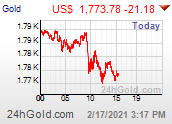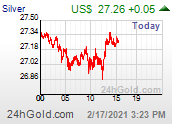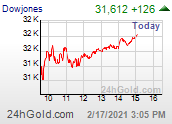Bonds May be Issued, But Will They be Bought?
Looks like between 40 and 50 thousand (out of 210,000) voters decided to go for broke and rehab Denver all at once. As I said previously, we might as well borrow as much as we can now, because the US dollar is falling so fast, the dollars we pay back will be all shriveled and shrunken.
In case you hadn't noticed, our dollar has fallen 34% since Bush got in, 7% in the last month, and now, at about 8:00 pm this very evening (11/6/07), it appears to have fallen off a cliff.
And then there is this from the U.K. Telegraph:
Bond insurers set off fresh wave of credit panic
By Ambrose Evans-Pritchard, International Business Editor
Last Updated: 12:43am GMT 07/11/2007
Fitch Ratings has threatened to downgrade a clutch of top US bond insurers in a move that could set off a fresh credit crisis and cause contagion across America's $2,400bn (£1,150bn) municipal bond market.
You see what I mean..."2.4 TRILLION municipal bond market" of cities borrowings. That's going to include us.
The total amount of our current Bond Boondoggle (tm) was decreased before it went before us on the ballot because of fears that a larger amount would not be able to get the highest bond rating. Now a ripple of lowered bond ratings could strike fear into the hearts of the funds that buy these bonds. A lower rating for Denver's bonds could mean a higher interest payment, so that the $1.1 Billion going to interest could be what....$1.6 Billion? Oh boy, here come da judge! The price is going up before we can even get this paper out the door!
Spread that cost of borrowing over the projects we actually plan to build/repair, and you've got yourself some pretty expensive projects, as old Joe Anderson so aptly pointed out. I can't help but wonder if those less than 25% of us who voted in favor would have done so if they had fully understood that each $100,000 project, using the current cost of borrowing figures, will cost $300,000, each $1,000,000 will cost $3,000,000, and so on.
Like many of the sub-prime buyers, we don't want to think about that part. We'll just keep making those payment, as long as we can, while the stuff we built and fixed up will be depreciating and running down.
Ooops, we should have thought of that.












The exchange rate graph has a highly truncated boundaries and visually overstates the amount of the decline.
ReplyDeleteI'm not terribly worried about the muni market because it is less dependent upon foreign purchasers than the market for U.S. Treasury bonds, and because the assurance of payment is high given the way property taxes work to fund the bonds.
One of my first jobs as a lawyer was to do due diligence for municipal bonds, and realistically, barring a Detroit/Flint class economic collapse, or Orange County/St. Vrain School district class fraud, neither of which are likely in Denver, the bonds are going to be paid and provide a tax free investment to buyers, and a blow market rate interest rate to the city.
Denver's municipal bond ratings are solidly investment grade (A+ and up) even without insurance, and unless insurers become absolutely worthless, the fall from the AAA ratings with insurance to the AA- and A+ ratings (both stable) without it, would only be compromised in part. A few of our insurance bonds might go from AAA to AA+, which is not that big a deal ratewise.